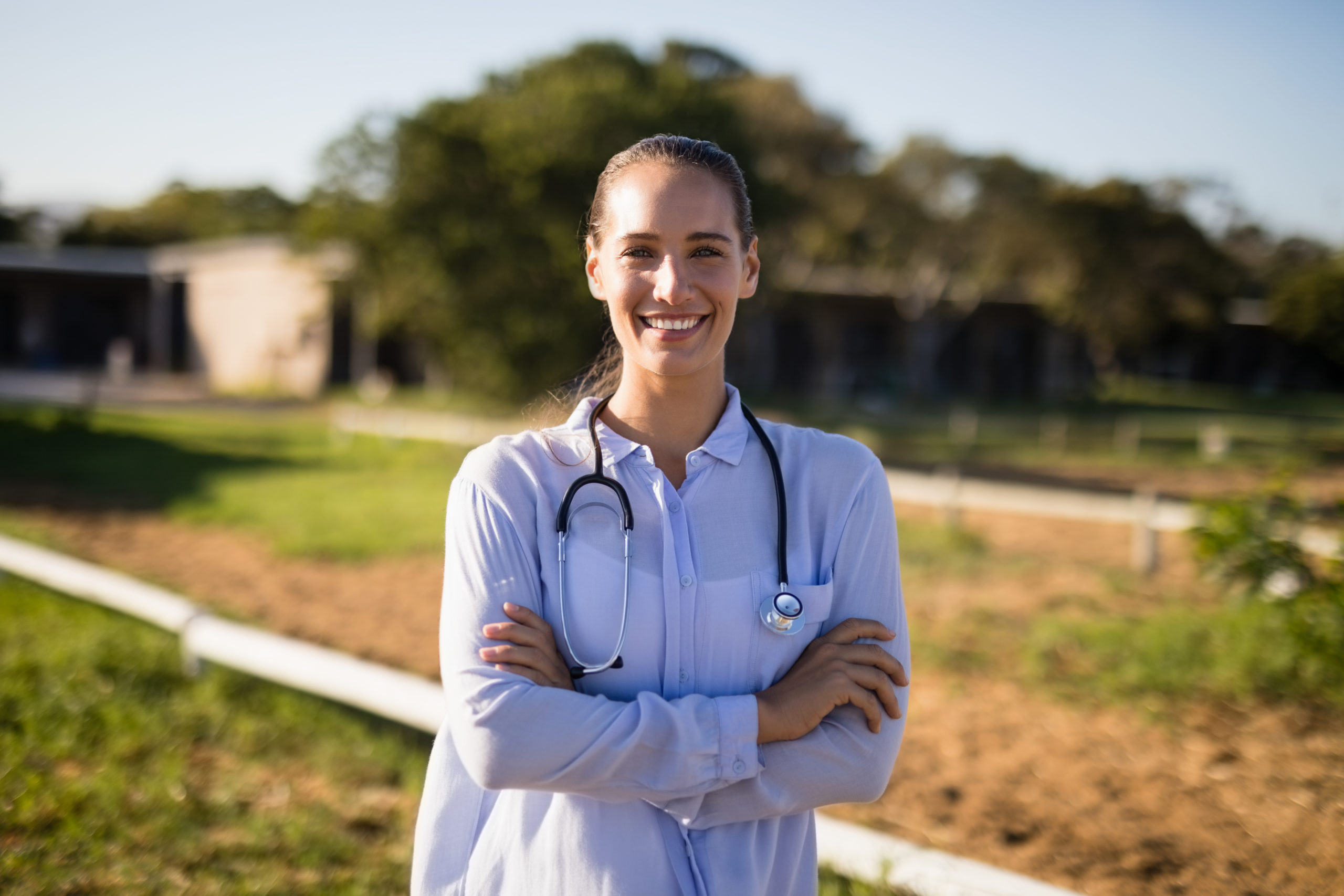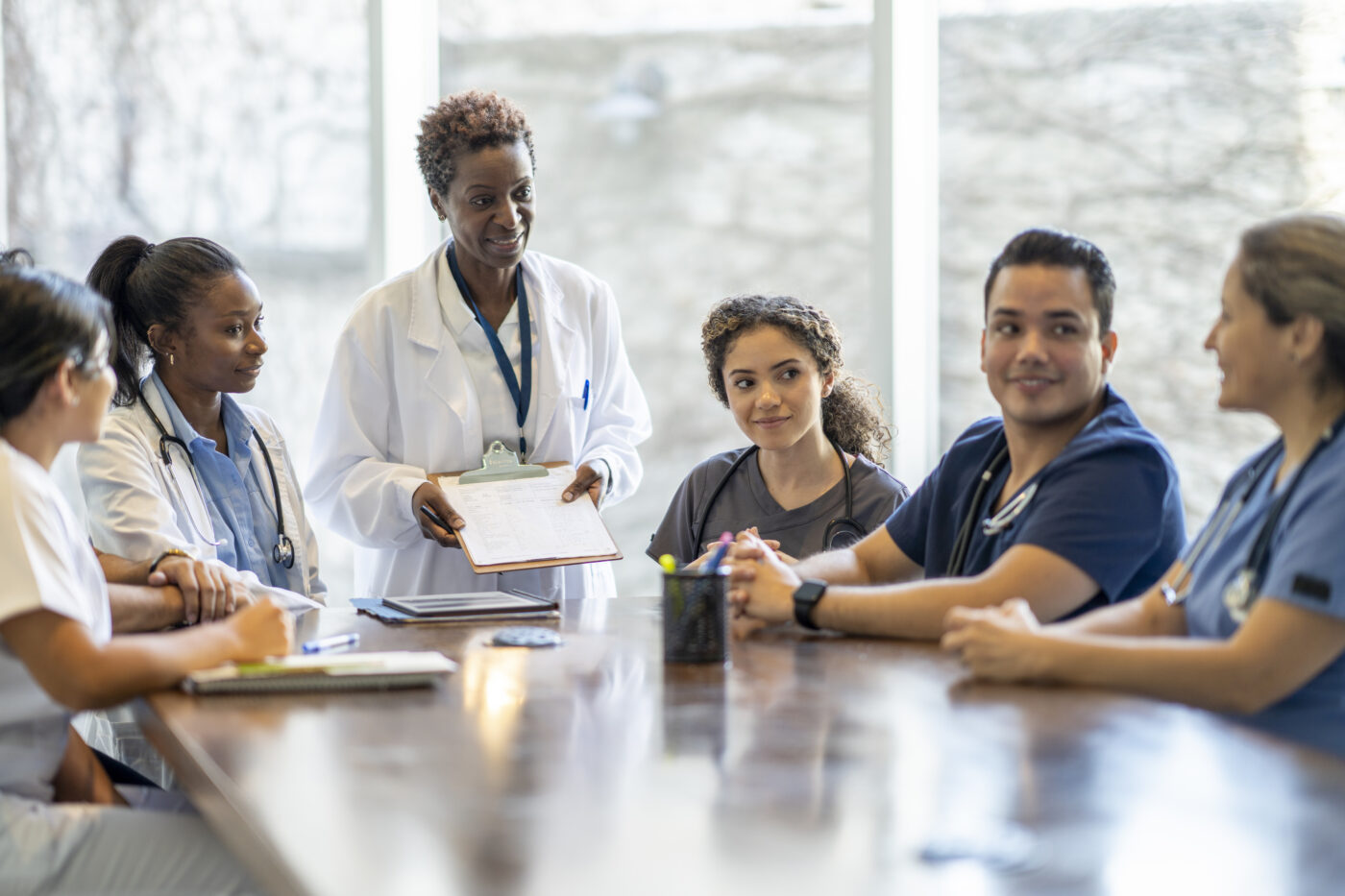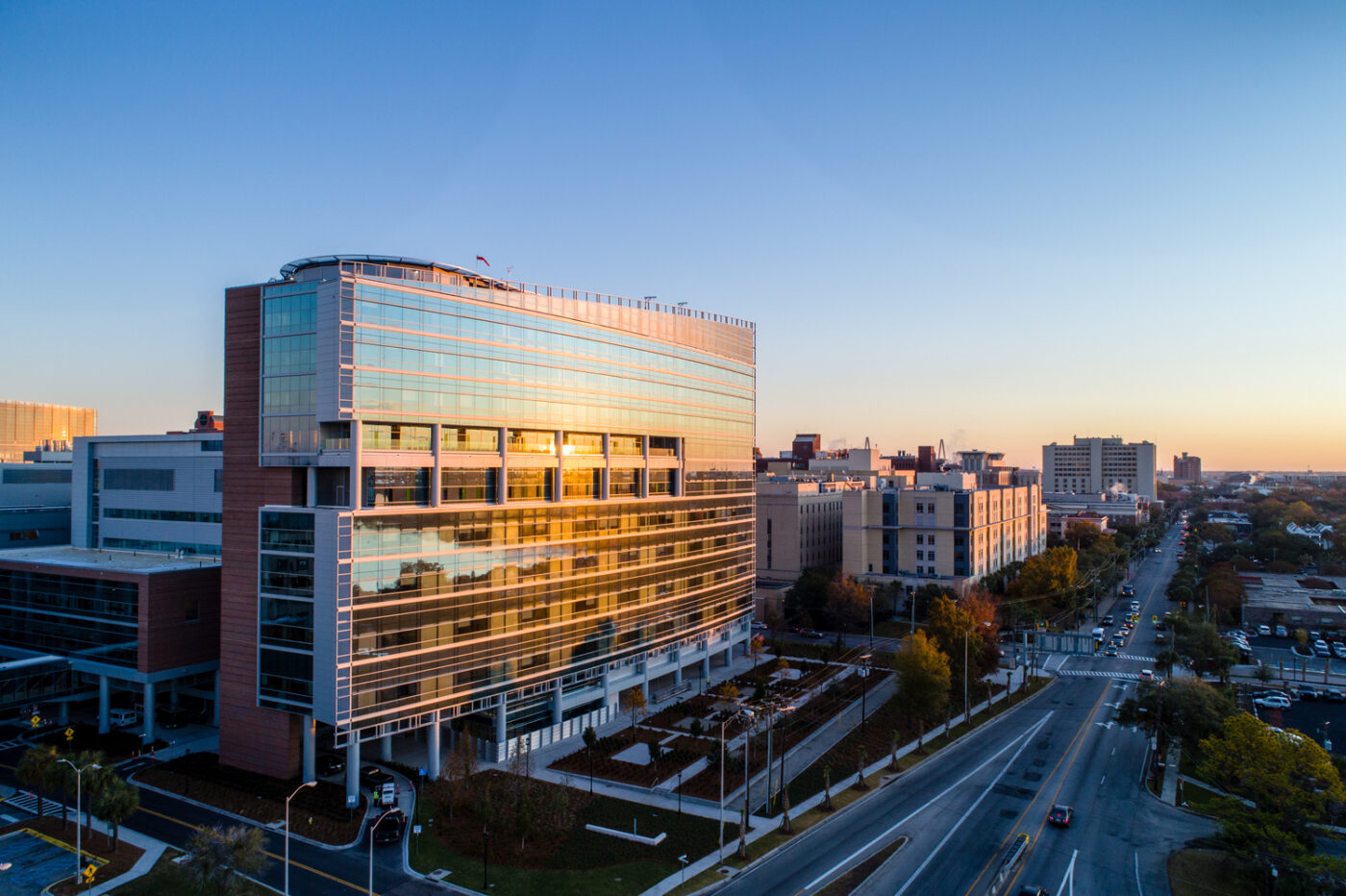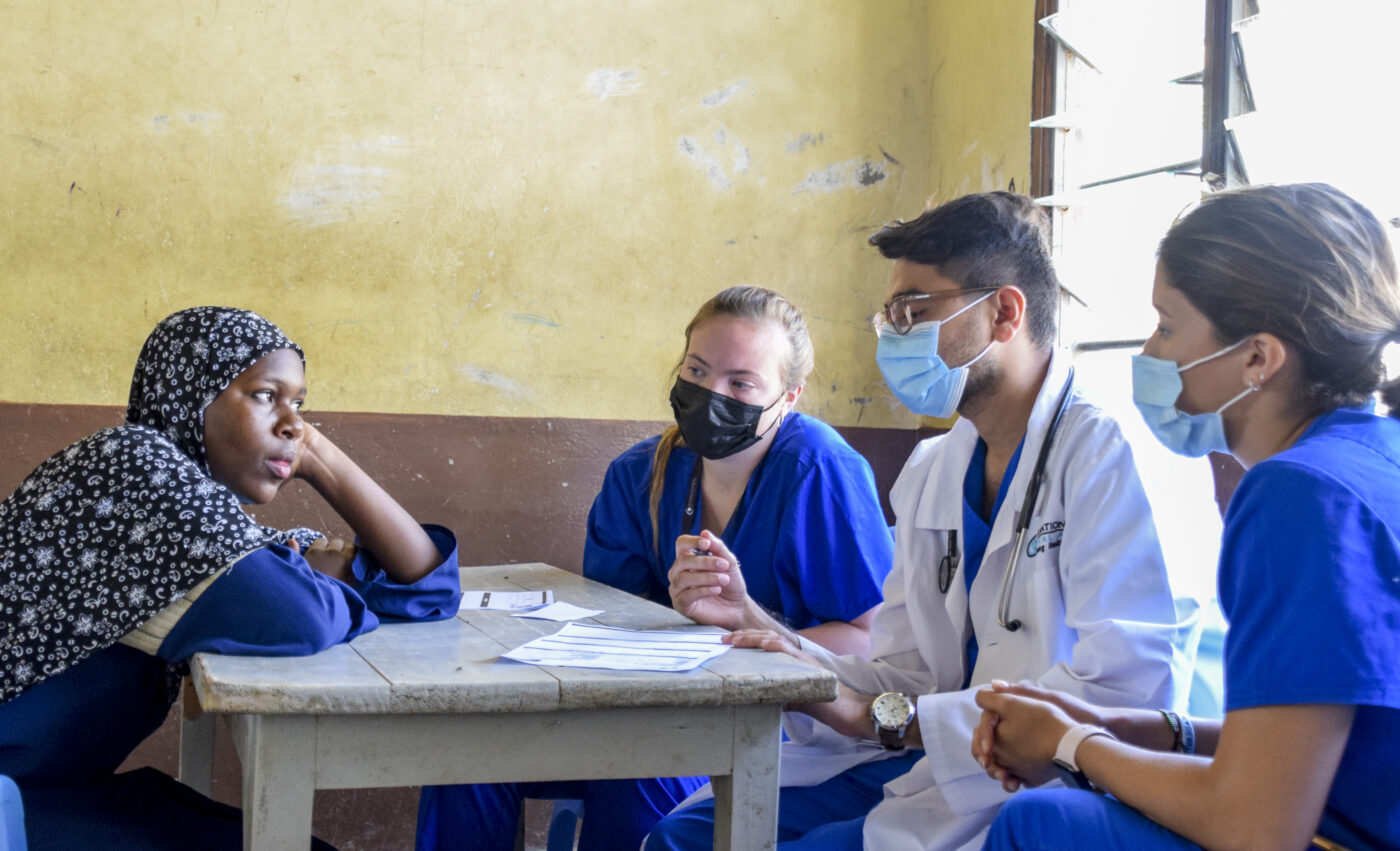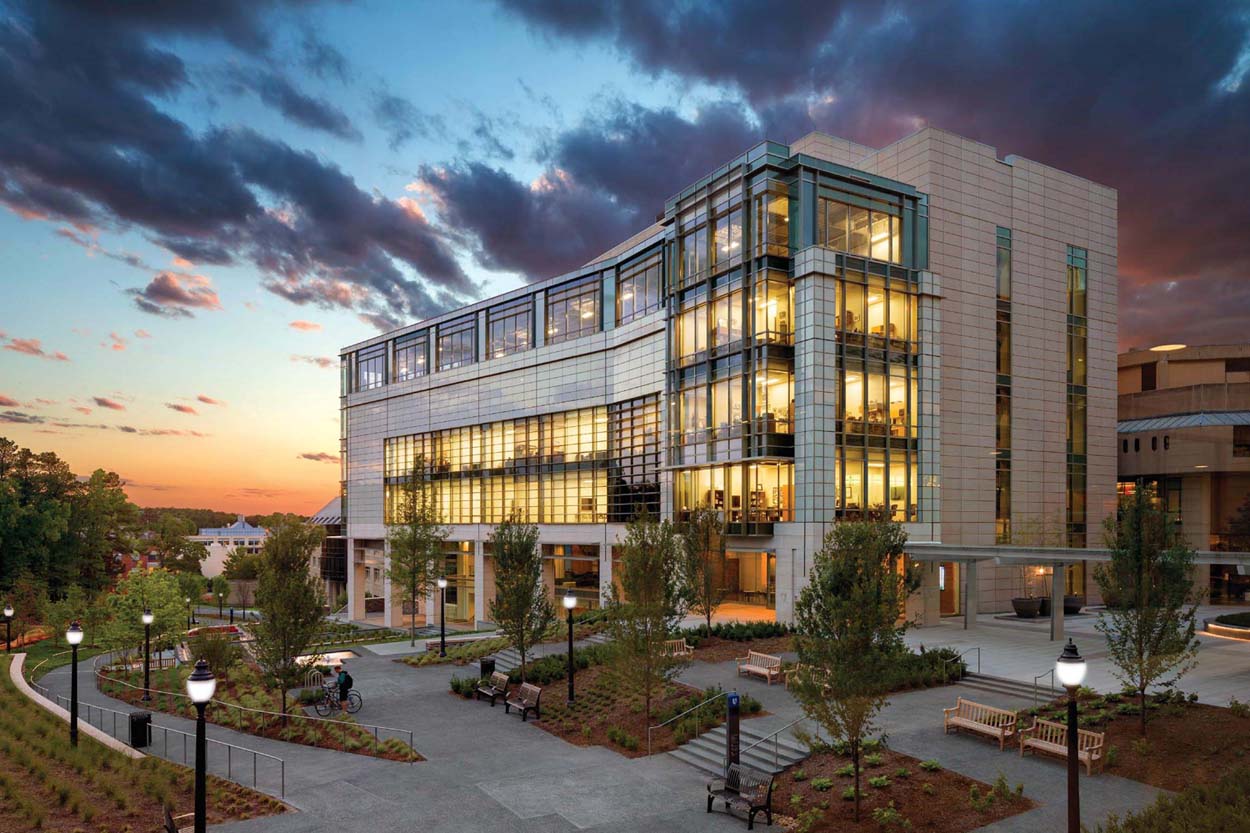Located in the lovely state capital of Columbia, South Carolina, the University of South Carolina School of Medicine has been educating medical professionals since 1973. Since then, thousands of eager, young medical professionals have graduated and gone on to bring healing to the masses. It is a fully accredited program. If you’ve been searching for “medical schools near me”, you’ll want to explore this progressive program.
South Carolina Medical School has two primary focuses: educating future healthcare providers and producing quality research that makes an impact on the medical community and patients around the world. Working with partner Palmetto Health, as well as other collaborations, has been great for the expansion of the University of South Carolina Medical School’s program offerings.
The University of South Carolina School of Medicine offers several highly successful programs, including the 4-year Medical Doctor (MD) program and outstanding graduate programs in biomedical sciences, genetic counseling, rehabilitation counseling, nurse anesthesia, and physician assistant (PA, as well as other continuing education opportunities. The University of South Carolina PA program is extremely popular.
It is notoriously difficult to get into any reputable medical school, and the University of South Carolina Medical School fits that mold. Matriculating to this school is challenging, and it’s crucial to be as prepared as possible going into the process. This guide has been designed to give you every bit of important information needed to be successful in your application.
Be an Informed Applicant
If you’ve done your homework and researched the best medical schools in South Carolina, you’ll have narrowed your list down to a handful of schools you feel could be the perfect fit for you. If the University of South Carolina Medical School is on your list, you’ll need to follow the application instructions flawlessly to increase your chances of gaining acceptance. The first step is to read through this guide. Our medical school guides will be an incredible asset to you during this process.
If you’re interested in several medical schools, we offer these medical school guides for a variety of medical school programs. If you’re browsing other states and not just considering medical schools in South Carolina, we have guides for programs around the country.
This guide was built specifically for the University of South Carolina School of Medicine and should not be considered a guide for any other medical school. Each guide is unique and specific to that program.
Topics covered in this guide include:
- Why the University of South Carolina School of Medicine?
- The University of South Carolina School of Medicine School Ranking
- Medical Programs at South Carolina Medical School
- Facilities, Student Organizations, and More
- Selection Factors: What South Carolina Medical School Looks for in an Applicant
- Admissions Requirements for the University of South Carolina Medical School
- University of South Carolina Medical School Acceptance Rate & Admissions Statistics
- University of South Carolina Medical School Tuition & Cost of Attendance
- AMCAS Primary Application & University of South Carolina Medical School Secondary Application
- University of South Carolina Medical School Secondary Application: Essay Prompts, Sample Answers, and Advice
- University of South Carolina Medical School Interview Process
- Medical School Admissions Consulting
- Voluntary Healthcare Internships Abroad
Personalized Help
One-to-one, personalized assistance through the medical school application program is hands-down the best way to prepare for applying to the University of South Carolina School of Medicine, or any school for that matter. Our medical school admissions consulting program is designed to make this process as easy as possible for you and your family. Our experts will help you with your applications, provide advice about your essay responses, and prepare you for your interview, including running you through mock interviews. Contact us here if you have any questions.
Why the University of South Carolina School of Medicine?
The University of South Carolina School of Medicine is located in the heart of this beautiful state, and the location itself gives students one reason to select this school. Being community-focused, preparing physicians and medical professionals of all types to serve the people of South Carolina, particularly the underserved population, is a key part of their vision and goals. Bringing healthcare to rural communities, the University of South Carolina Medical School is sending qualified doctors out with scientific knowledge and clinical experience to make a difference in the world of healthcare.
Partnering with several healthcare systems has helped the school grow in its ability to offer clinical experience in a variety of specialty fields. Some of their more notable partners include Palmetto Health, Dorn Veteran Administration Medical Center, Greenwood Genetics Center, and the South Carolina Department of Mental Health.
If you are interested in the research aspect of medicine, the University Medical School of SC is a great choice. They believe the key to truly understanding how to treat ALL patients is extensive research. Students of the University of South Carolina Medical School will focus their research efforts on those tackling areas that are taking the most lives year after year, such as cancer, neuroscience, and cardiovascular health issues.
Medical programs at the University of South Carolina Medical School are fully accredited and provide students with an integrated academic and clinical education. They also developed a faculty mentorship program that is quite special and effective.
Here are the stated values of the University of South Carolina School of Medicine:
- Excellence: We are committed to achieving the highest levels of personal and professional performance in all our endeavors.
- Professionalism: We adhere to the highest standards of behavior, guided by the values and practices of our professions.
- Collaboration: We partner with individuals, teams, institutions, and communities to enhance the value of our efforts.
- Diversity and Inclusion: We create and sustain an inclusive and diverse environment, demonstrating in word and deed our commitment to valuing and supporting each other and those whom we serve.
- Compassion: We are resolute in our efforts to relieve suffering and promote fairness.
The University of South Carolina School of Medicine School Ranking
US News and World Report states that the University of South Carolina Medical School is ranked:
- #1 in Most Graduates Practicing in Medically Underserved Areas
- #44 in Most Graduates Practicing in Primary Care Fields
- #65 in Most Graduates Practicing in Rural Areas (tie)
- #71 in Best Medical Schools: Primary Care (tie)
- #93 in Best Medical Schools: Research (tie)
- #97-125 in Most Diverse Medical Schools
Medical Programs at the University of South Carolina Medical School
The University of South Carolina Medical School has several highly popular programs, such as the 4-year MD program, the MD/PhD Dual Degree program, and the University of South Carolina PA program.
University of South Carolina 4-Year MD Program
Students of the 4-year MD program at the University of South Carolina Medical School will start by absorbing the full knowledge of the basic medical sciences. The academic portion of the program is thorough and extensive. Once the foundation is laid, students move on to hands-on clinical training, where they will learn all the ins and outs of working with real patients and using medical technology, like ultrasound machines.
The University of South Carolina Medical School leads the country in the primary care field, and the focus is always on serving the underserved and residents of rural areas. Two areas of focus that set this school apart from the others are the Florence Regional Campus and the Integrated Ultrasound aspects.
Florence Regional Campus
The Florence Regional Campus is offered to third- and fourth-year medical students who are working to finish their clinical rotations. The small classes at this campus provide a maximum amount of hands-on clinical experience. Resident and attending physicians guide and oversee students in the McLeod Family Medicine Residency Program so that they will master the foundations of patient care and develop the skills needed to be a primary care physician in this specific rural setting.
Integrated Ultrasound
In 2006, the University of South Carolina Medical School led the nation in becoming the first program to integrate ultrasound technology into the 4-year MD curriculum. This has opened the door to many wonderfully enriching experiences for medical students, including the opportunity to test out new technologies as they are invented. The University of South Carolina Medical School’s Radiology program has been recognized for being accessible and thorough. The idea here is that ultrasound technology is a valuable, important tool that is used in almost all medical fields, so it should be part of a comprehensive medical program.
Years One and Two
Students at the University of South Carolina Medical School’s will focus the first two years on:
- Gross Anatomy
- Histology
- Behavioral Science
- Biochemistry
- Microbiology
- Pathology
- Pharmacology
- Physiology
These classes will prepare students with the scientific foundation for what they will do in their clinical experiences. Students will practice skills in history-taking, performing exams, and analyzing medical research. All of these skills come into play when treating patients.
Years Three and Four
The second half of their schooling at the University of South Carolina Medical School will be dedicated to hands-on clinical training rotations in:
- Family Medicine
- Internal Medicine
- Neurology
- Obstetrics and Gynecology
- Pediatrics
- Psychiatry
- Surgery
These clinical rotations take place in local hospitals that work in partnership with the University Medical School of SC or at the Florence Regional Campus.
Click here for a list of elective course options for third- and fourth-year students.During the final year, students will start to direct their paths toward their individual interests by selecting electives in accordance with those specialties. They will participate in the 8-week rotations where they will have contact with real patients in need of treatment. Students will also participate in Capstone, which is a one-month program of interdepartmental and interdisciplinary learning that gets students ready for the move into residency training.
University of South Carolina MD/PhD Dual Degree Program
The University of South Carolina Medical School’s MD/PhD dual degree program is an option for incoming students. The program begins with the MD basic science classes and research aspects. Right from the start, students will be encouraged to consider possible research interests. With mentorship being such an important part of the program, it’s good to figure out where your interests lie as early as possible so that you can be matched with the correct professors to guide your research endeavors.
This 7-year program is going to split your time between the MD program and the research project. With the overlapping classes freeing up time, you’ll be able to finish both degrees and have a deep understanding of how medical research shapes the treatment of patients.
University of South Carolina PA Program
The University of South Carolina PA program for students wanting to become a physician assistant (PA) prepares students to make a positive impact on the healthcare system, treating patients in all settings and with diverse backgrounds. The curriculum is extensive so that students have the foundation they need to get right into the trenches of the medical community. It consists of academic and hands-on clinical training. Thorough training in ultrasound techniques will be included as well.
Students who enroll in the PA program will receive a lot of personalized attention from knowledgeable and experienced faculty, a large selection of specialties to focus on, and access to the most modern technology.
Graduates of the University of South Carolina PA Program will be able to:
- Conduct Physical Exams
- Diagnose and Treat Illnesses
- Order and Interpret Tests
- Counsel on Preventive Health
- Assist in Surgery
- Write Prescriptions
The need for qualified PAs continues to grow, so there’s no fear of not being able to find a placement after graduation. Medical professionals are greatly needed throughout the United States. Graduates of this program will have to take the Physician Assistant National Certifying Exam (PANCE), which can be a challenge, but the University of South Carolina School of Medicine provides a review course to help prepare them.
The following competencies must be met by graduates of the PA program:
- Demonstrate the knowledge to evaluate and manage common medical, surgical, and behavioral problems in patients across the lifespan in a variety of healthcare settings.
- Utilizing and interpreting appropriate diagnostic and laboratory studies, formulate a treatment plan to include pharmacologic therapy and patient education.
- Communicate and interact effectively with patients, families, and members of the interprofessional team across a broad range of socioeconomic and cultural backgrounds.
- Elicit an appropriate medical history and accurately document it in the medical record.
- Apply an understanding of indications, contraindications, techniques, risks, and benefits of common medical procedures.
- Demonstrate the ability to perform a detailed physical exam relevant to the medical history.
- Demonstrate professional behavior in congruence with the AAPA ethical code of conduct.
- Demonstrate the ability to search, interpret, and evaluate medical literature in the context of professional development and patient care.
- Applying clinical acumen and medical decision-making skills, create and refine the differential diagnosis to determine the most likely diagnosis.
- Develop a patient-centered management plan with consideration for socioeconomic status in an effort to increase access to care and patient compliance.
University of South Carolina Biomedical Sciences Program
The purpose of the Biomedical Sciences program is to prepare students to be experts at research, making huge impacts in the healthcare systems of South Carolina and beyond. Students will be trained in presenting their research at conferences and getting their papers published in medical journals and other publications. Each student has a mentor, so you’ll be matched up with someone based on your reported interests in the field. This relationship between mentor and mentee is a key component of the program there.
University of South Carolina Nurse Anesthesia Program (CRNA)
This integrated program runs for 36 months and culminates in a Doctor of Nursing Anesthesia Practice (DNAP) in Nurse Anesthesia. It consists of academic learning, hands-on experience, simulation work, and a study of the workings of anesthesia. After completing the program, graduates can take the NBCRNA’s National Certification Exam (NCE). A passing score means they earn the title of Certified Registered Nurse Anesthetist (CRNA).
Students of this program will begin with two full-time semesters of online study, introductory and foundational didactic coursework. The courses are intensive and cover a lot of material. Students must be able to prove a comprehensive understanding before moving on to the third semester simulation work. Again, this program is full-time, and students may find it difficult to balance outside work while in the program. From this point forward, students will have a combination of online and in-person learning.
The class sizes are kept small, which means more personal attention for each student. The faculty is top-notch. If you’re looking for “CRNAs school near me” or “CRNAs school of South Carolina”, you’ll find the University of South Carolina School of Medicine is a top contender.
University of South Carolina Genetic Counseling
The genetic counseling program at the University of South Carolina Medical School has been recognized for excellence and is highly competitive to get into. The focus is on thorough coursework, community service, fascinating fieldwork that helps students grow, and the well-researched thesis that each graduate must have completed.This program produces knowledgeable and skilled geneticists who work around the world. The University of South Carolina Medical School was the first in the Southeast part of the country and the tenth overall to start such a successful program.
Facilities, Student Organizations, and More
Facilities
VA Hospital (Main Campus)
South Carolina Medical School’s main campus is the VA Hospital in Columbia, South Carolina. It is located not far from the main USC campus and the Palmetto Health facilities, where much of the clinical work will take place.
Humphries Fitness Center
Students of the University of South Carolina Medical School have access to the Humphries Fitness Center. The school wants students to remember to take care of their physical health while they are working hard to become healers themselves.
Florence Regional Campus
The Luther F. Carter Center for Health Sciences Complex, located in downtown Florence, SC is where students of the Florence Regional Campus will gain their clinical learning and skills. The center offers 50,000 square feet of space for instruction, simulation technology, and computer labs. There is even a student lounge and café.
Student Organizations
Student Organizations and Activities
- Alpha Omega Alpha (AOA)
- American Medical Student Association (AMSA)
- American Medical Women’s Association (AMWA)
- American Medical Association (AMA)
- Gold Humanism Honor Society
- Medical Student Association (MSA)
- Medical Students for Choice (MSFC)
- The Student National Medical Association (SNMA)
- Vertically Integrated Trainee Program (VITP)
Student Interest Groups
- Addiction Medicine Interest Group (AMIG)
- Allies of Sistercare
- Anesthesiology Interest Group
- Association of Women Surgeons (AWS)
- Biomedical Science Graduate Student Association (BSGSA)
- Business in Medicine
- Cardiology Interest Group
- Christian Medical and Dental Association
- Community Outreach Group (COG)
- Dermatology Interest Group
- Emergency Medicine Interest Group (EMIG)
- Family Medicine Interest Group (FMIG)
- Gastroenterology Interest Group
- Global Medicine Interest Group
- Healthy Eating and Active Lifestyles (HEAL)
- Infectious Disease Interest Group
- Innovation in Medicine
- Internal Medicine Interest Group
- Medical Musician Association (MMA)
- Military Medicine Interest Group (MMIG)
- Neurosurgery Interest Group
- Obstetrics & Gynecology Interest Group
- Oncology Interest Group (OIG)
- Orthopedic and Sports Medicine Interest Group (OSMIG)
- Otolaryngology Interest Group
- Pathology Interest Group
- Pediatrics Interest Group
- Physical Medicine & Rehabilitation Interest Group (PM&RIG)
- Plastic Surgery Interest Group (PSIG)
- PLUS
- Psychiatry Student Interest Group
- Radiology Interest Group
- Rural Health Interest Group
- Simulation and Clinical Skills Interest Group (SCSIG)
- Students for Environmental Awareness in Medicine (SEAM)
- Students Interest Group in Neurology (SIGN)
- Surgery Interest Group
- Ultrasound Interest Group (USIG)
- Wilderness Medicine Interest Group
Centers and Institutes
- NIH Center for Complementary and Integrative Medicine
- NIH Center for Dietary Supplements and Inflammation
- Cardiovascular Translational Research Center
- Center for Disability Resources
- Research Center for Transforming Health
- S.C. Center for Rural and Primary Healthcare
- S.C. HIV Clinical Training Center
- Simulation and Interactive Learning Center
- Transnational Alliance for Genetic Counseling
- Ultrasound Institute.
Charles S. and Donna H. Bryan School of Medicine Library
The Charles S. and Donna H. Bryan School of Medicine Library contains an unimaginable amount of information via electronic journals, textbooks, and biomedical databases. This information will become vital for students’ coursework and research. For more information, visit their website.
Selection Factors: What the University of South Carolina Medical School Looks for in an Applicant
The University of South Carolina School of Medicine admissions committee is always looking for students who share the school’s vision for what good healthcare should look like and who are passionate, committed, diverse, and community-minded. Their dedication to having a diverse student body means they are considering applications from students of all backgrounds, sexual orientations, gender identifications, ethnicities, financial statuses, and more.
The admissions committee will look at candidates holistically to determine if they will be a good fit for the school, and vice versa. While test scores and grades are important, they do not make or break your application. They will be looking at you as a whole person – your strengths and weaknesses, your academic background, the clinical experience you have, your community service, and more.
Earning admission into the University of South Carolina Medical School is not easy, as it is highly competitive. It’s crucial that you follow the instructions, mind the timelines, and get as much assistance as possible to gain acceptance.
Here are some of the elements of your application that the committee will be paying attention to:
- Residency – The majority of South Carolina Medical School students reside in South Carolina.
- Citizenship – Must be a U.S. Citizen or a U.S. Permanent Resident. International applicants are not currently eligible.
- Bachelor’s Degree – preferred, but occasionally 90 semester hours accepted.
- Healthcare Experience – There is no minimum number of hours required, but the admissions committee will expect to see a significant amount of time spent in the healthcare setting, such as volunteering at a clinic, physician shadowing, etc.
- Excelling in Science
- MCAT Scores
- Transcripts
- GPA Records
- Community Service
- Personal Character & Individuality
- Letters of Recommendation
Admissions Requirements for the University of South Carolina Medical School
The admissions committee would prefer candidates to be able to produce a bachelor’s degree, but they will occasionally accept a minimum of 90 semester hours in lieu of the degree. While the University of South Carolina School of Medicine does not have a set list of prerequisites, there are certain courses the admissions committee is looking for and expecting that a qualified candidate will have done well in.
The admissions committee will be looking to see if candidates have completed the following recommended coursework prior to applying:
- General Biology
- General Chemistry
- Organic Chemistry
- Biochemistry
The admissions committee would prefer that coursework have been taken in-person, but they do accept online classes as well. This can definitely be a point that sways the committee toward one applicant over another.
Minimum GPA and MCAT Requirements for the University of South Carolina Medical School
There is no minimum MCAT requirement, but the average MCAT score is 508.
There is no minimum GPA requirement, but the average GPA for current matriculants is 3.7.
Volunteer Service and Clinical Experience
The University of South Carolina School of Medicine admissions committee doesn’t have a minimum number of hours in volunteer service or clinical experience required, but they do expect that serious applicants will have had at least some experience working in the healthcare system, either as a volunteer or an employee.
The following are some ways in which you might demonstrate your experience to the admission committee:
- Volunteer at a health clinic, hospital, or doctor’s office
- Shadowing a physician or another type of medical professional
- Taking advantage of our pre-med shadowing study abroad program or a similar program elsewhere
- Medical scribing
- EMT or CNA experience
- Participating in a medical research project
- Community service focused on some aspects of healthcare
University of South Carolina Medical School Letters of Recommendation
All candidates are required to submit a minimum of three letters of recommendation via the AMCAS application process, and a maximum of five letters are allowed. While it is not required, it is highly recommended that two of the three letters be from a faculty member in the science department who would understand your grasp of the science you’ve studied. Letters may also be authored by a prehealth committee or advisor or a letter packet put together by your college.
For more information about submitting letters of recommendation, visit AMCAS.
Required & Recommended Coursework at the University of South Carolina Medical School
It is recommended that candidates have completed the following coursework:
- General Biology
- General Chemistry
- Organic Chemistry
- Biochemistry
- Physics
- Psychology
Does the University of South Carolina Medical School Require the CASPer Exam?
The University of South Carolina Medical School does not require the CASPer exam at this time.
The University of South Carolina Medical School Acceptance Rate & Admissions Statistics
The University of South Carolina School of Medicine proves to be a very challenging school to gain admittance into, with a modest acceptance rate. Out of the 3,258 total applicants in 2022, only 100 new students enrolled. That’s a 3% acceptance rate.
Out of those 100 new students, 74 were residents of South Carolina and 26 were out-of-state applicants. New students came from:
- California
- Florida
- Georgia
- Illinois
- Kentucky
- Maryland
- New Hampshire
- New York
- North Carolina
- Pennsylvania
- South Carolina
- Tennessee
- Texas
- Utah
- Virginia
There were 45 new male students and 55 female students. The average GPA was 3.75, with an average GPA of the sciences of 3.66. The average MCAT score was 508.
South Carolina Medical School 2023 Class Profile
The following are some statistics regarding the class of 2023:
- Total Enrollment: 100 students
- Men: 45%
- Women: 55%
- Average MCAT – 508
- Average GPA – 3.75
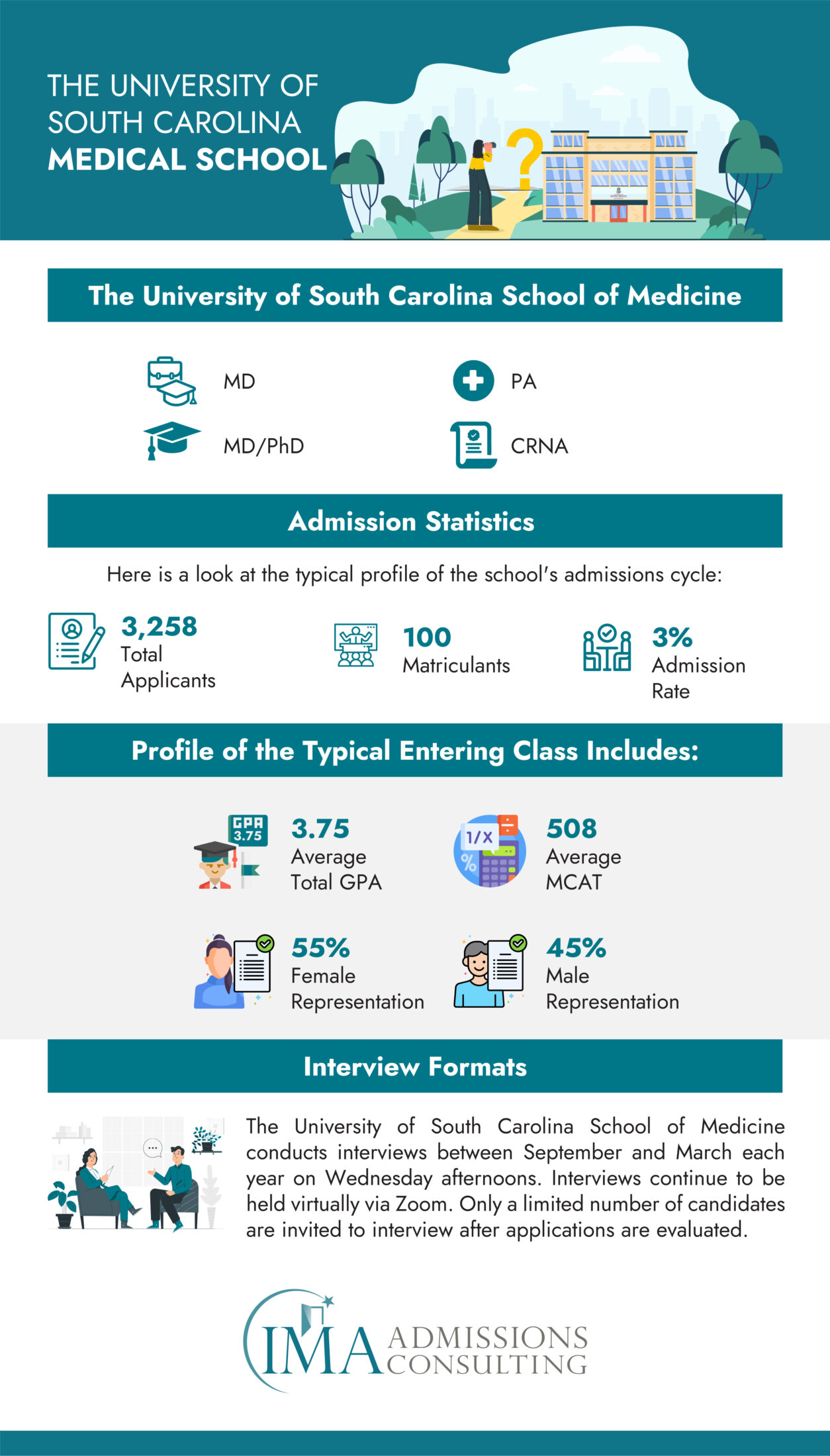
The University of South Carolina Medical School Tuition & Cost of Attendance
These tuition and fees are based on the South Carolina Medical School’s 2022-2023 academic year. Fees are subject to change.
Year 1:
- $42,888 In-state/$87,150 Out-of-state Tuition and Fees
- $1,599 Books and Supplies
- $21,638 Room and Board, Travel, and Personal Expenses
- $44 Health Insurance
- $1245 Fees
$68,073 Total for In-state Students / $112,335 Total for Out-of-state Students
Year 2:
- $42,888 In-state/$87,150 Out-of-state Tuition and Fees
- $589 Books and Supplies
- $23,853 Room and Board, Travel, and Personal Expenses
- $44 Health Insurance
- $2,755 Fees
$68,843 Total for In-state Students / $113,105 Total for Out-of-state Students
Year 3:
- $42,888 In-state/$87,150 Out-of-state Tuition and Fees
- $419 Books and Supplies
- $29,346 Room and Board, Travel, and Personal Expenses
- $44 Health Insurance
- $1,245 Fees
$74,166 Total for In-state Students / $118,428 Total for Out-of-state Students
Year 4:
- $42,888 In-state/$87,150 Out-of-state Tuition and Fees
- $0 Books and Supplies
- $24,311 Room and Board, Travel, and Personal Expenses
- $44 Health Insurance
- $1,079 Fees
$68546 Total for In-state Students / $112,808 Total for Out-of-state Students
Being knowledgeable can help you navigate this complicated system. For more information on the costs of attending medical schools in the United States, visit our Medical School Database, where we offer detailed guidance and helpful information.
AMCAS Primary Application & The University of South Carolina Medical School Secondary Application
Applying for the University of South Carolina Medical School begins with a primary application through the American Medical College Application Service (AMCAS), with the application window beginning in early May. This primary application process can take up to 8 weeks from when you submit it to AMCAS to when they turn it over to the schools you are applying to. Applying early is highly recommended.
The AMCAS primary application is going to collect the important information about you that is needed to determine your eligibility for matriculation at the University of South Carolina Medical School. You should be as thorough and authentic as possible. You’ll also submit your letters of recommendation through AMCAS, so follow directions closely and pay attention to the timelines.
Once you have completed and submitted your primary application and letters of recommendation through AMCAS, the admissions committee will review them to make sure you qualify to move forward in the process. They will send out the secondary applications to all eligible applicants.
There is a $100 non-refundable fee to complete the supplemental application, although a waiver will be automatically processed if you were already approved for the AAMC FAP program.
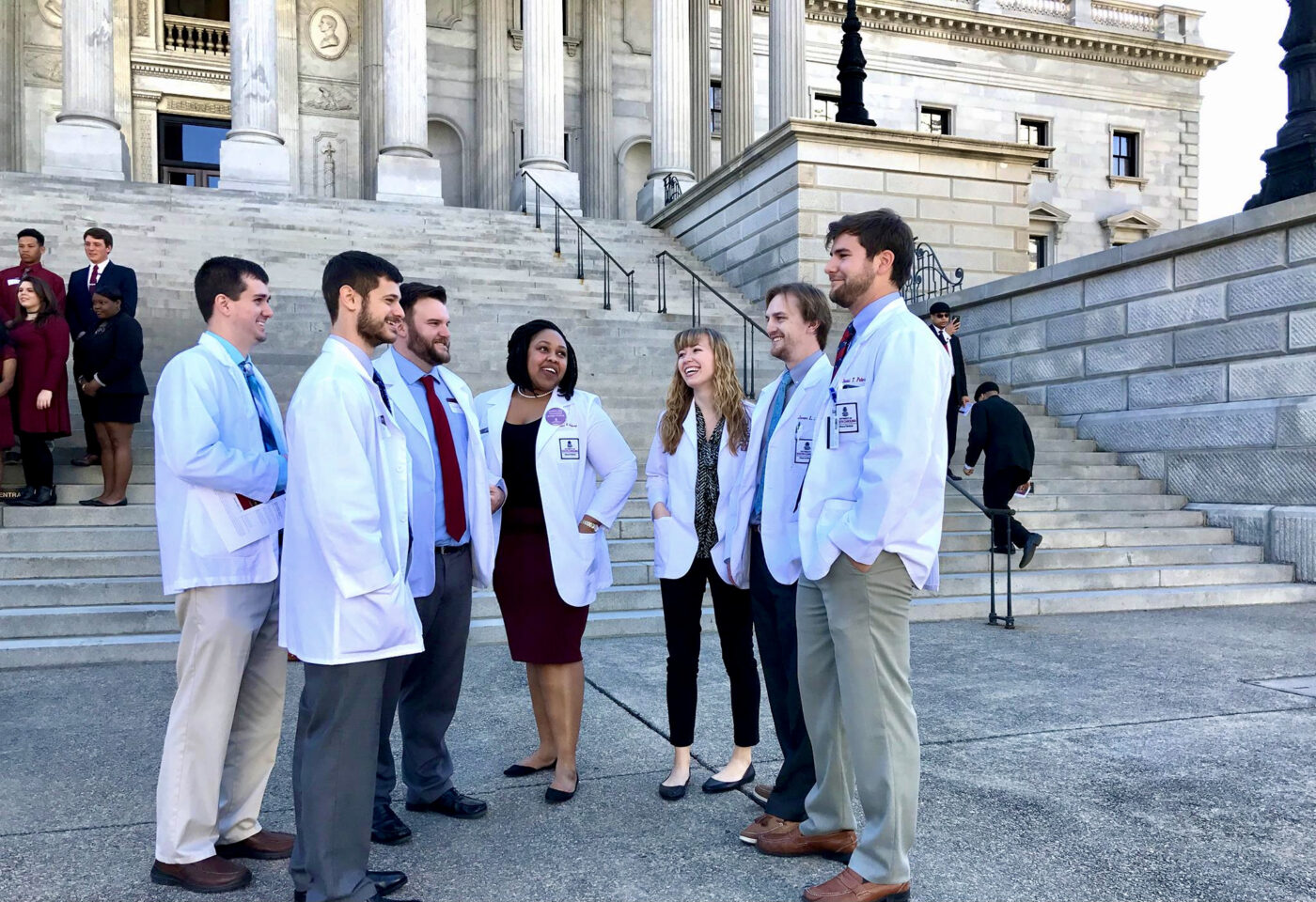
The University of South Carolina Medical School Secondary Application: Essay Prompts, Sample Answers, and Advice
Below are the University of South Carolina Medical School’s secondary essay questions for the 2021-2022 application cycle. All prompts have a 2,000 character-limit.
Essay #1
What are your medical practice goals?
There are a variety of responses that would be appropriate here, but you absolutely must be genuine in how you answer this question. You can address goals such as treating underserved populations, this is how the admissions committee gets a feel for how you will fit in with the mission, vision, and values of the school. It also gives you an idea of whether this school is right for you. Review the values the University of South Carolina Medical School holds, and then make a list of your medical practice goals and see how they line up.
Essay #2
If it has been more than six months since you completed your bachelor’s degree, please describe your employment status since that time (part-time, full-time, and dates).
The admissions committee wants to see that you’ve been using your time well and that you have kept your mind focused on your goals to pursue medical school and become a medical professional. If you have been working in any kind of healthcare setting, please share your experiences. Perhaps you’ve been doing some medical scribe work, volunteering at a clinic, or participating in a medical research project. Participating in a pre-med shadow study abroad program is another response they love to see. List them all and share what you learned from them.
Essay #3
In what region of the country do you want to practice medicine? Why?
Before answering this question, consider the strong focus of the University of South Carolina Medical School on providing quality medical professionals to the people of South Carolina. While you don’t have to commit to a lifetime of practicing locally, the admissions committee will love seeing that you intend to work in South Carolina, especially if you intend to work in rural and underserved regions. If this is also a passion of yours, do a little research into what regions of South Carolina need dedicated and knowledgeable practitioners. Consider if you might like to provide service in those areas, and share about that.
Essay #4
What areas of medicine are you interested in at this time, or what areas do you plan to pursue?
This question is straightforward, but you want to put some thought into it. What specialties are you interested in pursuing, and how do you plan to get to where you want to be? Your future doesn’t have to be set in stone. The admissions committee just wants to see that you’ve been putting some thought into it. They want to see passion, curiosity, and ambition. They want to get to know you as an individual.
What are you interested in focusing on? You could specialize in the University of South Carolina Medical School’s Internal Medicine program, or perhaps you’re more interested in taking on the University of South Carolina Medical School’s Family Medicine. Family medicine has been a recognized strength at the school. Share what you’re thinking in terms of specialties now, but know that it’s ok for that focus to change later, down the road.
Essay #5
Do you have any accomplishments or experiences that make you a unique applicant?
This may be one of the most important prompts in this section. This is where you can really introduce yourself to the admissions committee and be your true self so boldly that they remember you. Dig deep and share something personal. This is not about bragging. This prompt is all about showing the committee why your unique personality, experiences, and character will add diversity to the student body at the University of South Carolina Medical School.
Sample Answer
In June of 2020, I was walking home late one night in my busy city neighborhood, and I came across a woman lying just near the street on the pavement. She had been physically and sexually assaulted, and I was the person there to hear her outcry statement. I called the police, and they were there quickly to take care of her. One of the paramedics on the team told me that rape is much more prevalent in the more impoverished areas and that very few of them are even reported.
This horrific incident made an impact on me. It disturbed me, but I didn’t allow the trauma of seeing what I did to break me down but rather to produce in me a determination to make a difference and to help people. The next day I began contacting clinics in the most underserved area of the city, and I was taken in as a volunteer. While my work there may have seemed trivial, I knew I was partnering with these amazing medical professionals to serve people who truly needed help.
I also worked on a campaign on campus to encourage victims of sexual assault to make reports and to seek help, whether they need physical healing, emotional healing, or both. My calling in life is to become a doctor and treat patients who often go unseen. I will be a voice for the hurt ones who feel alone, and I will treat all patients with care and respect, no matter what their lifestyle or background may be. Every human being deserves respect and access to quality healthcare.
South Carolina Medical School Interview Process
The South Carolina Medical School admissions committee will continue to offer interviews virtually via Zoom for the upcoming application cycle. These interviews take place on Wednesday afternoons between September and March. Getting to the interview stage is an accomplishment on its own, so make sure to take full advantage of this opportunity.
Interviews help the admissions committee get to know you as a unique individual. This is a wonderful opportunity to let them see who you really are and to set yourself apart from other candidates. Let them see the real you, and feel free to ask questions.
There will be specific characteristics about you that the admissions committee will be looking for during the interview. The following are a few attributes they like to see:
- Superior Interpersonal Skills
- Good Listener
- Self-confidence
- Compassion
- Socially Aware
- Dedicated and Passionate
- Knowledge about the School
Many candidates find the interview process to be the most stressful stage of applying. Being as prepared as possible will help you feel more comfortable when it comes time for your interview with the admissions committee at the University of South Carolina Medical School. Often, students find it helpful to receive personalized coaching and even a mock interview through our medical school admissions consulting services.
Medical School Admissions Consulting
Here at International Medical Aid, we believe that investing in future physicians and medical professionals is investing in all of our futures. No matter who you are, you will one day need a good doctor or physician assistant, so it’s absolutely vital that those who feel called into the medical field are able to select, apply to, and matriculate in a quality medical school. This has been our motivation for developing and offering our medical school admissions consulting program.
Our consulting services cover a lot of information and provide help throughout the entire application process, but many find the assistance with the interview to be the most beneficial. Whether or not you feel confident with your abilities to interview well, having help with preparation can be invaluable. Our experts will give you guidance, prepare you, and even run you through a mock interview.
Take a moment to schedule a free consultation with one of our experts here.
Voluntary Healthcare Internships Abroad
Getting the opportunity to shadow an experienced, knowledgeable physician in a foreign setting is one that can really enrich the lives of aspiring medical professionals. A pre-med shadowing study abroad program gives students a true picture of what it’s like to treat patients of extremely diverse backgrounds and lifestyles. If shadowing a physician abroad is something you’ve considered, IMA’s voluntary healthcare internships abroad program is a fantastic choice.
Our pre-med shadowing study abroad program was designed specifically for pre-medical and gap year students with the vision of preparing them more than ever before for their future as a humanistic, global citizen physician.
Please take a few minutes to explore the benefits of our program on our website and reach out if you have any questions.
Best of Luck!
We sincerely wish you the best of luck as you begin your application process for the University of South Carolina Medical School. The process may seem daunting, but we hope this guide takes a bit of the stress away and answers many of the questions you may have.
If you’d like to explore our medical school admissions consulting program, please feel free to contact us, and we will get you the support you need to feel confident.
Whether you looked for medical schools in a different state or searched for medical schools near me, the University of South Carolina Medical School is a wonderful choice. We hope our guide helps you achieve your goal of attending this fine institution. Be sure to check out our other medical school guides:
- Medical University of South Carolina (MUSC)
- Lewis Katz School of Medicine at Temple University
- Philadelphia College of Osteopathic Medicine (PCOM)
- Geisinger Commonwealth School of Medicine (GCSOM)
- Penn State Medical School
- CUNY School of Medicine
- SUNY Downstate Medical School
- NYIT College of Osteopathic Medicine
- NYU Long Island School of Medicine
- TOURO College of Osteopathic Medicine
- Albany Medical College
- Norton College of Medicine at Upstate Medical University
- Jacobs School of Medicine at the University at Buffalo
- Hofstra Zucker School of Medicine
- Weill Medical College of Cornell University
- University of Rochester Medical School
- Icahn School of Medicine at Mount Sinai
- Renaissance School of Medicine at Stony Brook University
- Albert Einstein College of Medicine
- Ohio University Heritage College of Osteopathic Medicine
- Northeast Ohio Medical University (NEOMED)
- University of Cincinnati College of Medicine
- University of Toledo College of Medicine
- Wright State University Boonshoft School of Medicine
- Ohio State University College of Medicine
- Rowan University School of Osteopathic Medicine
- Hackensack Meridian School of Medicine (HMSOM)
- Rutgers New Jersey Medical School (NJMS)
- Rutgers Robert Wood Johnson Medical School
- Cooper Medical School of Rowan University (CMSRU)
- A.T. Still University Kirksville College of Osteopathic Medicine
- Saint Louis University School of Medicine
- University of Missouri Medical School
- Kansas City University (KCU)
- UMKC School of Medicine
- New York Medical College
- University of Pittsburgh School of Medicine
- University of Wisconsin Medical School
- VCU School of Medicine
- University of Maryland School of Medicine
- Case Western Medical School
- University of North Carolina Medical School
- University of Florida Medical School
- Emory University School of Medicine
- Boston University College of Medicine
- California University of Science and Medicine
- UC San Diego Medical School
- California Northstate University College of Medicine
- Touro University of California
- CHSU College of Osteopathic Medicine
- UC Davis School of Medicine
- Harvard Medical School
- UC Riverside School of Medicine
- USC Keck School of Medicine
- UT Southwestern Medical School
- Long School of Medicine at UT Health San Antonio
- University of the Incarnate Word School of Osteopathic Medicine
- UT Austin’s Dell Medical School
- UTMB School of Medicine
- McGovern Medical School at UT Health
- Johns Hopkins School of Medicine
- McGovern Medical School at UT Health
- The University of Texas Rio Grande Valley School of Medicine
- UNT Texas College of Osteopathic Medicine
- University of Houston College of Medicine
- Texas A&M College of Medicine
- Johns Hopkins Medical School
- Baylor College of Medicine
- George Washington University School of Medicine
- Vanderbilt University School of Medicine
- St. George’s University School of Medicine
- Lake Erie College of Osteopathic Medicine (in Pennsylvania)
- Sidney Kimmel Medical College at Thomas Jefferson University
- Wake Forest University School of Medicine
- Western University of Health Sciences (in California)
- Drexel University College of Medicine
- Stritch School of Medicine at Loyola University Chicago
- Georgetown University School of Medicine
- Yale School of Medicine
- Perelman School of Medicine
- UCLA Medical School
- NYU Medical School
- Washington University School of Medicine
- Brown Medical School
Feel free to contact us if you have questions about the application process, our medical guides, our pre-med shadowing study abroad program, or our Medical School Admissions Consulting services.



